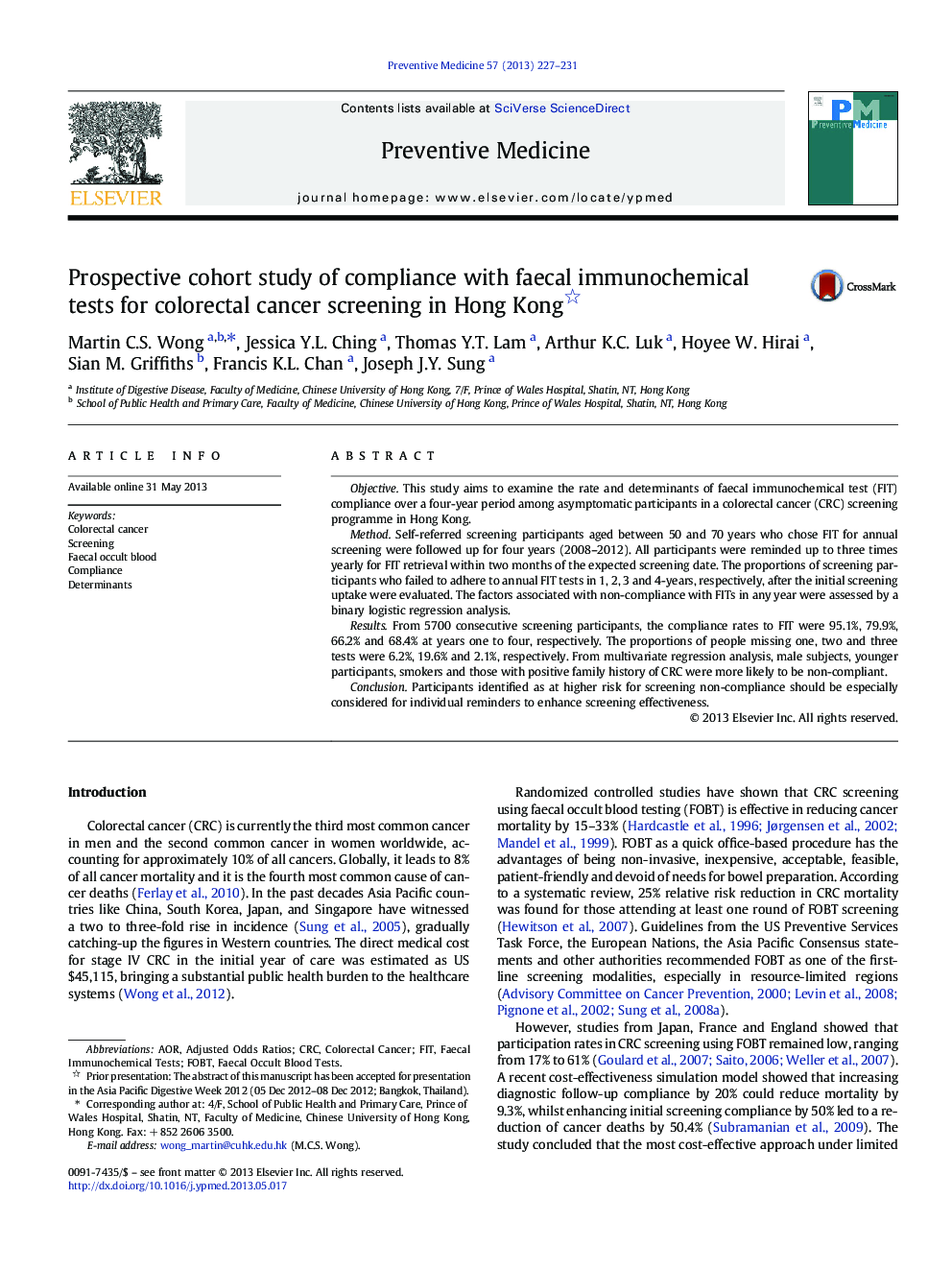| کد مقاله | کد نشریه | سال انتشار | مقاله انگلیسی | نسخه تمام متن |
|---|---|---|---|---|
| 6047635 | 1191200 | 2013 | 5 صفحه PDF | دانلود رایگان |

- Faecal test compliance of 5700 colorectal cancer screening participants was studied.
- The compliance rates were 95.1%, 79.9%, 66.2% and 68.4% at years 1-4, respectively.
- The proportions of people missing 1-3 tests were 6.2%, 19.6% and 2.1%, respectively.
- Younger males, smokers and subjects with family history were less compliant.
- They should be targeted for more individual reminders to enhance screening uptake.
ObjectiveThis study aims to examine the rate and determinants of faecal immunochemical test (FIT) compliance over a four-year period among asymptomatic participants in a colorectal cancer (CRC) screening programme in Hong Kong.MethodSelf-referred screening participants aged between 50 and 70Â years who chose FIT for annual screening were followed up for four years (2008-2012). All participants were reminded up to three times yearly for FIT retrieval within two months of the expected screening date. The proportions of screening participants who failed to adhere to annual FIT tests in 1, 2, 3 and 4-years, respectively, after the initial screening uptake were evaluated. The factors associated with non-compliance with FITs in any year were assessed by a binary logistic regression analysis.ResultsFrom 5700 consecutive screening participants, the compliance rates to FIT were 95.1%, 79.9%, 66.2% and 68.4% at years one to four, respectively. The proportions of people missing one, two and three tests were 6.2%, 19.6% and 2.1%, respectively. From multivariate regression analysis, male subjects, younger participants, smokers and those with positive family history of CRC were more likely to be non-compliant.ConclusionParticipants identified as at higher risk for screening non-compliance should be especially considered for individual reminders to enhance screening effectiveness.
Journal: Preventive Medicine - Volume 57, Issue 3, September 2013, Pages 227-231